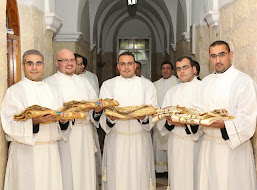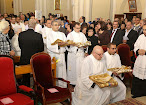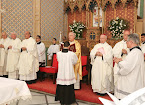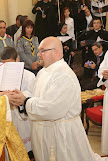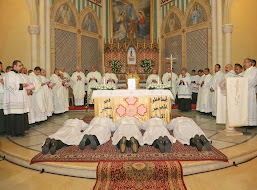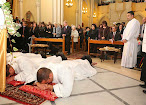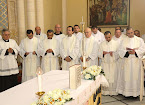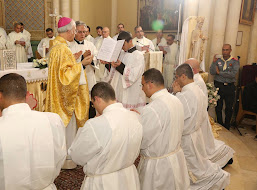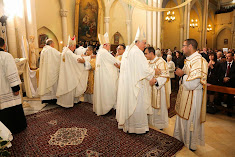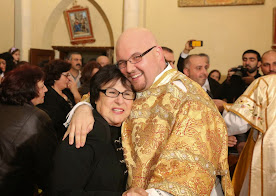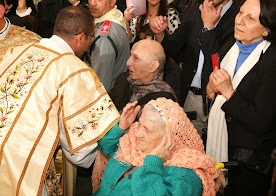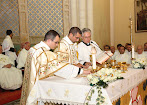By Dario Thuburn
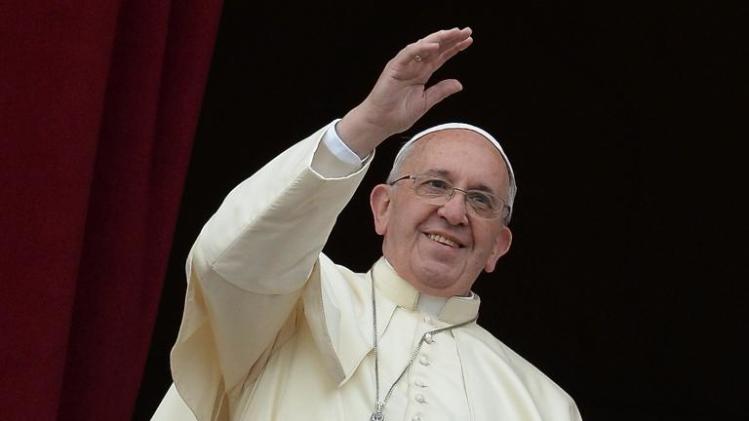
Vatican City (AFP) - Pope
Francis on Wednesday called for humanitarian aid access in Syria and
"social harmony" in South Sudan on his first Christmas in the Vatican
after months of shaking up the papacy with his humble style and common
touch.
Francis also
pleaded for divine aid to rescue child soldiers "robbed of their
childhood" and for peace in the conflict-torn Central African Republic
which he said was "often forgotten and overlooked".
In
a wide-ranging address known as the "Urbi et Orbi" (To the City and to
the World) blessing that touched on many conflicts, the Argentine pope
invited non-believers to join in a "desire" for peace in the world.
"Too
many lives have been shattered in recent times by the conflict in
Syria, fueling hatred and vengeance," the 77-year-old pope told a crowd
of tens of thousands of faithful in St Peter's Square.
"Let
us continue to ask the Lord to spare the beloved Syrian people further
suffering, and to enable the parties in conflict to put an end to all
violence and guarantee access to humanitarian aid," he said.
The
conflict in Syria is estimated to have killed more than 126,000 people
since it first started out as peaceful anti-regime protests in 2011 and
the violence there has unsettled the Middle East as a whole.A grim reminder of the tensions ravaging the region came on Wednesday when a car bomb outside a Baghdad church after a Christmas service left at least 14 people dead -- the latest in a string of daily attacks.
"Heal the wounds of the beloved country of Iraq," the pope said in his prayer.
In
his weekly address, US President Barack Obama stressed this year marks
the first time in years that many US troops and recent veterans have
spent Christmas at home with their families.
"For many of our troops and newest veterans, this might be the first time in years that they've been with their families on Christmas," he said. "In fact, with the Iraq war over and the transition in Afghanistan, fewer of our men and women in uniform are deployed in harm's way than at any time in the last decade."
South Sudanese 'not alone'
The pope also highlighted the fighting raging between army and rebel forces in South Sudan, where thousands are believed to have been killed over the past week as the UN moves to boost its peacekeeping force to stave off a full civil war.
The first Latin American pope asked for "social harmony in South Sudan, where current tensions have already caused numerous victims and are threatening peaceful coexistence in that young state".
UN Secretary-General Ban Ki-moon also sent a Christmas message to the people of South Sudan that they were "not alone" in the face of ethnic attacks which are "a grave violation of human rights".
The pope also said Central Africa was being "torn apart by a spiral of violence and poverty", called for immigrants to be given "acceptance and assistance", urged an end to the scourge of human trafficking and prayed for typhoon victims in the Philippines.
The
November typhoon left nearly 8,000 people dead or missing in the
Philippines but survivors defiantly celebrated Christmas in their ruined
communities, roasting hogs and filling churches to overflowing.
Francis has been riding a
wave of popularity following his momentous election as leader of the
world's Catholics in March and was "Person of the Year" by Time magazine
and the US gay rights publication The Advocate due to his now-famous
remark on gay people: "Who am I to judge?"
In
his first Christmas Eve mass in the Vatican, the pontiff highlighted
the role played by shepherds in the Nativity, returning to the theme of
humility that has been the hallmark of his papacy.
The pope also called on Catholic believers to open their hearts and struggle against the "spirit of darkness."
"If
our heart is closed, if we are dominated by pride, deceit,
self-seeking, then darkness falls within us," Francis said at the
service in Saint Peter's Basilica.
Time for 'quiet reflection'
In Britain, Queen Elizabeth II delivered her annual Christmas Day message calling for "quiet reflection" in 2014.
"We
all need to get the balance right between action and reflection," said
the 87-year-old monarch. "With so many distractions, it is easy to
forget to pause and take stock."
The
leader of the world's Anglicans, Justin Welby, in his first Christmas
address as Archbishop of Canterbury highlighted the plight of Christians
in the Middle East who are being "attacked and massacred" and driven
into exile.
In the West Bank
town of Bethlehem, the place where Christians believe Jesus was born,
Jerusalem's Latin patriarch Fuad Twal celebrated a Christmas midnight
mass attended by Palestinian president Mahmud Abbas.
In his homily, Twal called for a "just and equitable solution" to the decades-old Israeli-Palestinian conflict.
Thousands
of pilgrims and tourists made their way past Israel's controversial
separation wall to reach the Palestinian hilltop town, where snow
remains on the ground from a rare winter blizzard this month.
A
giant Santa was set up in Manger Square, outside the centuries-old
Church of the Nativity, where a candle-lit grotto marks the spot where
Christians believe the Virgin Mary gave birth to Jesus.




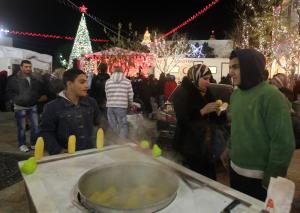
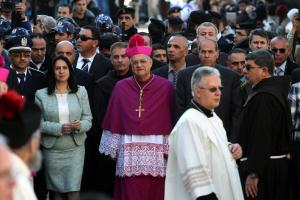
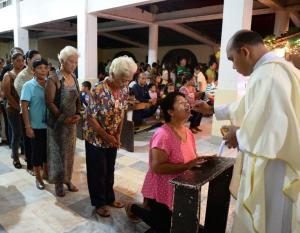
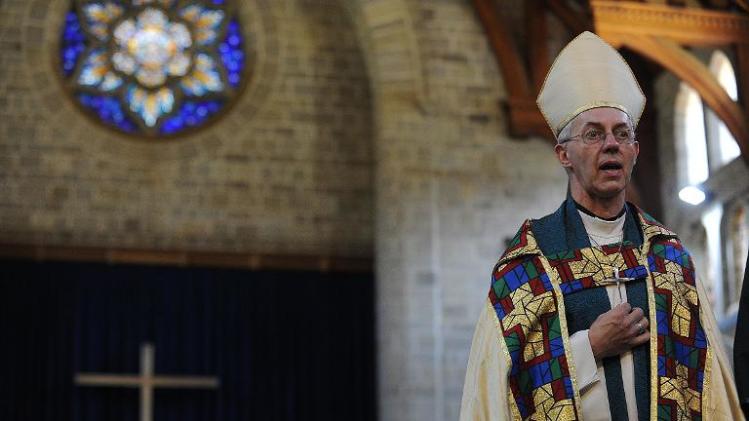




 The illegal Israeli settlement of Beitar Illit sits above the tiny
Palestinian village of Wadi Foquin, whose farmlands are being affected
by sewage runoff from above.
The illegal Israeli settlement of Beitar Illit sits above the tiny
Palestinian village of Wadi Foquin, whose farmlands are being affected
by sewage runoff from above.

